Express Entry is an immigration system introduced by the Canadian government in January 2015 to streamline and expedite the process of selecting skilled foreign workers for permanent residency. It was implemented by Immigration, Refugees and Citizenship Canada (IRCC) and is widely regarded as a highly efficient and transparent immigration system.
Express Entry is primarily focused on attracting skilled workers who have the potential to contribute to Canada’s economy and fill labour market gaps. It aims to select candidates based on their ability to successfully integrate into the Canadian workforce and society.
Immigration programs
The three federal economic immigration programs managed through Express Entry are as follows:
- Federal Skilled Worker Program (FSWP): This program is for skilled workers with foreign work experience in managerial, professional, or technical/professional occupations. It requires candidates to meet specific criteria related to work experience, education, language proficiency, and other factors.
- Federal Skilled Trades Program (FSTP): This program targets skilled tradespersons with relevant work experience in specific professional trade occupations. Applicants must meet eligibility requirements for work experience, language ability, and other criteria.
- Canadian Experience Class (CEC): This program is designed for individuals who have gained work experience in Canada and wish to obtain permanent residency. To be eligible, candidates must have at least one year of skilled work experience in Canada and meet other program requirements.
Express Entry allows the Canadian government to proactively select and invite candidates with the skills and qualifications to contribute to Canada’s economic growth. The system emphasizes factors such as age, education, language proficiency (in English or French), work experience, and adaptability to assess a candidate’s ability to succeed in the Canadian labour market.
By implementing the Comprehensive Ranking System (CRS), Express Entry ensures that candidates with higher CRS scores receive priority in the selection process. The CRS assigns points to several factors, and candidates are ranked against each other based on their scores.
This ranking system enables the government to conduct regular draws and issue Invitations to Apply (ITAs) to the highest-ranking candidates for permanent residency.

How the Express Entry system works:
- Eligibility Criteria: Candidates must meet the eligibility requirements for one of the three federal economic immigration programs managed through Express Entry: the Federal Skilled Worker Program (FSWP), the Federal Skilled Trades Program (FSTP), or the Canadian Experience Class (CEC).
- Creation of an Online Profile: Eligible candidates create an online profile in the Express Entry system. The profile includes their age, education, work experience, language proficiency, and other relevant factors. Based on this information, candidates are assigned a CRS score.
- Comprehensive Ranking System (CRS) Score: The CRS score is calculated based on a range of factors such as age, education, work experience, language skills, and adaptability. The higher the CRS score, the better the chances of receiving an Invitation to Apply (ITA) for permanent residency.
- Ranking in the Pool: Candidates who meet the minimum eligibility criteria enter the Express Entry pool along with other applicants. The profiles in the pool are ranked based on their CRS scores. The government conducts regular draws (known as Express Entry draws) to invite the highest-ranking candidates to apply for permanent residency.
- Invitations to Apply (ITAs): In each draw, candidates with the highest CRS scores receive an Invitation to Apply (ITA) for permanent residency. Once invited, candidates have a specified period (usually 60 days) to submit a complete application for permanent residence.
- Application for Permanent Residency: Candidates who receive an ITA can submit a detailed application for permanent residency. They must provide supporting documents to verify the information in their profile, such as educational transcripts, language test results, and work experience letters.
- Assessment and Decision: The government reviews the submitted applications and assesses them based on eligibility criteria and admissibility requirements, such as security and medical checks. If the application is approved, the candidate receives confirmation of permanent residency (COPR) and can proceed with the final steps to immigrate to Canada.
It’s important to note that having an active Express Entry profile does not guarantee an ITA, as the selection depends on the CRS score and the number of invitations issued in each draw.
Candidates with higher CRS scores and those with a provincial nomination or a valid job offer in Canada have better chances of receiving an ITA.
Are you planning on applying for Express Entry in Canada? Contact EMF Immigration.

